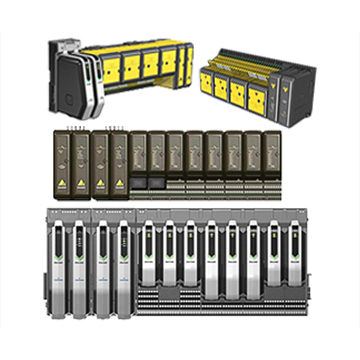Unlocking the Secrets of PLC CPU Modules: The Heartbeat of Industrial Automation!
In the rapidly evolving landscape of industrial automation, PLC CPU modules stand as the backbone of modern control systems. These sophisticated devices are integral to the seamless operation of various industries, enabling everything from manufacturing processes to complex robotic systems. As industries increasingly depend on automation technologies to enhance efficiency and productivity, understanding the role of PLC CPU modules becomes essential. This article delves into the core functions, types, and applications of PLC CPU modules, shedding light on their significance and future potential in the world of industrial automation.

Understanding PLC CPU Modules
PLC CPU modules, or Programmable Logic Controller Central Processing Units, are critical components in industrial automation systems. At their core, these modules are designed to execute control logic and manage operations within an automated environment. A typical PLC CPU module consists of a microprocessor, memory for storing programs and data, and interfaces for communication with input and output devices. This combination allows the module to read inputs from sensors, process that information based on predefined logic, and then send commands to actuators and other devices. The ability to rapidly process data and execute commands in real-time makes PLC CPU modules indispensable in maintaining operational efficiency and precision in industrial settings.
Functions of PLC CPU Modules
The primary functions of PLC CPU modules revolve around data processing, communication, and control execution. They receive data from various input devices such as sensors, switches, and encoders. This information is processed using built-in logic, which can range from simple on/off commands to complex algorithms that control entire production lines. Additionally, PLC CPU modules communicate seamlessly with input/output devices, ensuring that the system responds promptly to changing conditions. For instance, in a manufacturing plant, if a sensor detects a fault in a machine, the PLC can instantly take corrective actions—like shutting down the equipment or alerting operators. This capability not only enhances safety but also minimizes downtime, showcasing the critical role of PLC CPU modules in industrial automation.
Types of PLC CPU Modules
PLC CPU modules come in various designs, primarily categorized into modular and compact types. Modular PLCs are designed to be expandable, allowing users to add additional modules as needed for increased I/O capacity or enhanced functionality. This flexibility makes them ideal for large and complex automation systems. On the other hand, compact PLCs are integrated units that offer a smaller footprint, making them suitable for applications with space constraints. These compact systems are often easier to install and maintain, making them popular in smaller operations or for specific tasks within larger systems. Regardless of the type, the choice of PLC CPU module often depends on the specific requirements of the automation application, such as processing power, scalability, and environmental conditions.
Applications in Industrial Automation
PLC CPU modules are employed in a wide range of industrial automation applications. In manufacturing, they control assembly lines, ensuring that each step of the process is executed with precision and reliability. For process control, PLCs manage complex operations in industries such as oil and gas, where they monitor and control variables like temperature, pressure, and flow rates. Additionally, in robotics, PLC CPU modules coordinate the actions of robotic arms and other automated machinery, allowing for sophisticated tasks such as welding, painting, or packaging. Each of these applications demonstrates the versatility and essential nature of PLC CPU modules in enhancing operational efficiency and productivity across various sectors.
Future Trends in PLC Technology
The future of PLC technology is poised for exciting advancements, particularly with the integration of the Internet of Things (IoT) and Artificial Intelligence (AI). As industries increasingly adopt smart technologies, PLCs will likely evolve to communicate with a broader range of devices and systems over the internet. This connectivity will enable real-time monitoring and data analytics, leading to more informed decision-making and predictive maintenance strategies. Furthermore, AI integration could allow PLCs to learn from operational data, optimizing processes beyond traditional programming capabilities. As these trends unfold, PLC CPU modules will continue to play a pivotal role in shaping the future of industrial automation.
Significance and Future of PLC CPU Modules
PLC CPU modules are undoubtedly the heartbeat of industrial automation, driving efficiency, safety, and productivity across various sectors. From their fundamental definitions to their diverse applications and future trends, understanding these modules is crucial for anyone involved in the field of automation. As technology continues to advance, the role of PLC CPU modules will expand, further embedding them into the fabric of modern industry. For those looking to delve deeper into the realm of PLC technology, the journey is just beginning, and the possibilities are virtually limitless.








